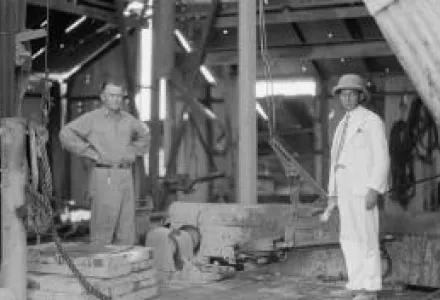The Open Door and U.S. Policy in Iraq between the World Wars
Scholarship on U.S. involvement in the Middle East has traditionally maintained that after the Senate rejected the Treaty of Versailles and refused to participate in the League of Nations mandate system, the United States returned to political isolation and watched events in the Middle East passively from the sidelines. This presentation challenges that narrative by arguing that the United States did have both interests in and a policy concerning Iraq during that time. The open door policy the U.S. government set out in the correspondence with Britain in 1920–1921 represents a full and cogent policy on Iraq that was advanced throughout the interwar period to protect American interests and standing in that country.
Please join us! Coffee and tea provided. Everyone is welcome, but admittance will be on a first come–first served basis.




